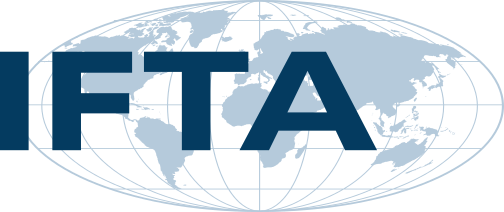IFTA is an international non-profit organization with members in 22 countries.
The International Federation of Technical Analysts, Inc. (IFTA) was incorporated in 1986 and is a global organization of market analysis societies and associations. This not-for-profit federation has four main goals:
- Provide a centralized international exchange for information, data, business practices, local customs and all matters related to technical analysis in various financial centers.
- Provide meetings and encourage the interchange of material, ideas and information for the purpose of adding to the knowledge of colleagues of individual societies and associations.
- Foster the establishment of local (country) societies of technical analysts around the world.
- Encourage the highest standards of professional ethics and competence among technical analysts worldwide.
Mission
The International Federation of Technical Analysts is a non-profit federation of 24 societies who individually and jointly dedicate themselves to
- Research, education, camaraderie and dissemination of technical analysis of world markets. The IFTA societies support sharing technical analytical methodology that at its highest level is a valid, and often-indispensable element in the formulation of a reasonable basis for investment decisions.
- Promotion of the highest standards of professional conduct, international cooperation and scholarship between all its Member and Developing Societies within all arenas of technical analysis.
- Providing centralized international exchange for information and data of various financial centers while respecting individual country and Society business practices, legal structures and customs.
- Encouraging the standardization of education and testing of its constituent members in technical analysis, making sure that each individual country’s security analyst licensing, legal and language /communication priorities continue to be individually accepted.
- Fostering the establishment of individual societies of technical analysts without bias in regard to race, creed or religion. It supports the need for maintaining a free and open worldwide market under normal, and in particular crisis periods.
As a growing bridge of communication worldwide, IFTA remains open to methods of technical analysis, while encouraging the consideration and support of membership for both developing and established societies.
History
The International Federation of Technical Analysts was established in the 1980s. The original members were the Nippon Technical Analysts Association, the Market Technicians Association, the Society of Technical Analysts, the Technical Security Analysts Society of San Francisco, and the Canadian Society of Technical Analysts.
IFTA was incorporated in the state of Delaware, USA on January 22, 1986; as a not-for-profit organization to foster education and collaboration amongst technical analysis societies and associations around the world.
The first IFTA conference was held in Tokyo in late 1988. This provided an excellent forum for the exchange of ideas on the subject of technical analysis and its success was followed by a second Conference in London in October 1989. Since then IFTA has held an annual conference in different locations throughout the world.
IFTA has been led by the following Chairs:
- Wieland Arlt, CFTe (VTAD-Germany) 2020-Present
- Mohamed El Saiid, MFTA, CFTe (ESTA-Egypt) 2016-2020
- Rolf Wetzer, Ph.D., MFTA, CFTe (SAMT-Switzerland) 2013-2015
- Adam Sorab, FSTA, CFTe (STA-United Kingdom) 2010-2012
- Elaine Knuth (SAMT-Switzerland) 2007-2009
- Bill Sharp (CSTA-Canada) 2004-2006
- Hiroshi Okamoto, MFTA (NTAA-Japan) 2001-2003
- Bruno Estier, MFTA, CFTe (SAMT-Switzerland) 1998-2000
- John Brooks, CFTe (USA) 1995-1997
- Robin Griffiths, CFTe (STA-United Kingdom) 1992-1994
- Ralph Acampora, CMT (USA) 1987-1991
Code of Ethics
The Technical Analyst (IFTA Colleague) must maintain at all times the highest standards of professional conduct. Implicit in the requirement is strict compliance with the laws of the national, state and local governments which have jurisdiction over the analysts’ professional activities. The analyst shall also obey the regulations of his/her local exchanges and/or local regulatory authorities.
The analyst shall not make statements that he/she knows, or has reason to believe, are inaccurate or misleading. He/she shall, in particular, be careful to avoid leading an audience to believe that his/her technically-derived views of future market price behavior reflect foreknowledge rather than estimate and projections subject to re-examinations and, as circumstances may dictate, to change.
The analyst shall not make statements concerning the current technical position of a market or any of its components or any of its aspects unless he/she can demonstrate that such statements are reasonable and consistent in light of the available evidence and the accumulated knowledge in the field of technical analysis. New developments in technical analysis as well as modifications of existing techniques or concepts should be fully documented as to procedure and rationale.
Local Chapter Ethics Policies apply.
More Information
Find out more about IFTA board members and IFTA bylaws.

